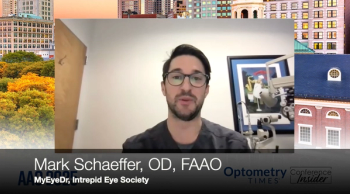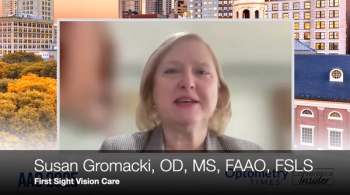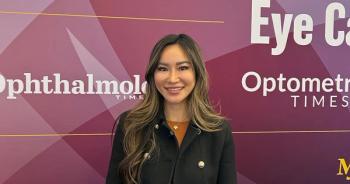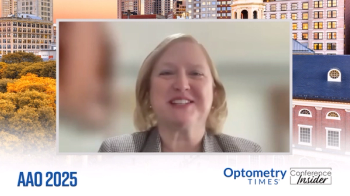
VEW 2022: OSD management: systemic conditions and medications
Jacob R. Lang, OD, FAAO, highlights his Vision Expo West presentation,"An update on systemic conditions and medications you must look out for in OSD management."
Optometry Times®' Alex Delaney-Gesing speaks with Jacob R. Lang, OD, FAAO, of the Associated Eye Care (Stillwater, Minnesota), regarding his discussion titled, "An update on systemic conditions and medications you must look out for in OSD management," presented during the 2022 Vision Expo West meeting in Las Vegas, Nevada.
Editor's note: The following transcipt has been lightly edited for clarity.
Could you share a highlights version of your presentation?
Our conversation goes over systemic interactions and systemic medication interactions with the ocular surface. So we're really seeing that the ocular surface and the anterior segment in general can be manifest a lot of signs of disease process that are not specific to the eye, but are more systemic conditions with ocular manifestations. And so we really delve into several types of conditions and diseases and processes that we need to take into consideration. And so we need to not only take care of the eyeballs, but we have to take care of the whole patient.
Why is this such an important topic of discussion?
It really is an important topic because these systemic conditions can have other problems that are manifestations. So that might be more serious than what we're seeing in the eye and the ocular surface. These patients might be at risk for other conditions, cancers, and disease processes that might have a bigger effect downhill. And if we can ward them off earlier with earlier intervention in these stomach conditions, we can get better outcomes. So really, we're just trying to take better care of our patients and have them have happier and healthier eyes and bodies, and also help our colleagues have easier jobs, especially with interaction and communication with our endocrinology colleagues. We can see things from their perspective and communicate/ interact with them better.
What are the key takeaways you'd like attendees to learn?
Some of the key things I hope doctors take away from my lecture is the different interactions that systemic conditions can and will have on the ocular surface. Some of the systemic conditions—such as Sjögren's syndrome, thyroid eye disease, medication interactions and manifestations—that they should think about when they're taking care of their patients so that we can do a better job as doctors as a whole.
Newsletter
Want more insights like this? Subscribe to Optometry Times and get clinical pearls and practice tips delivered straight to your inbox.













































